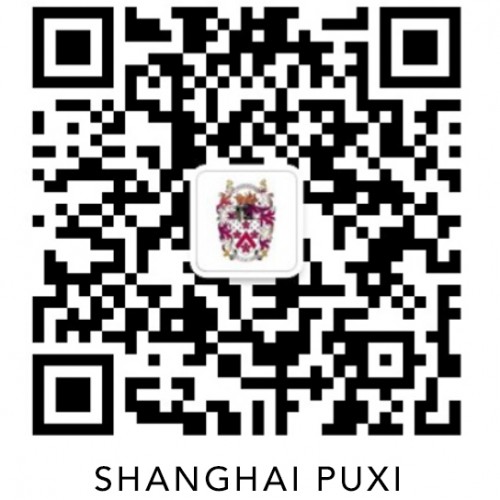Building the Skills for Research and Conceptual Understanding
After a restful Chinese New Year holiday, the staff and students at Dulwich College Shanghai Puxi are once again plowing full steam ahead into the second part of Term 2 and the exciting learning coming in the weeks and months ahead.
This year the primary school staff have been digging deeper into our topic curricula to highlight key concepts and construct conceptually charged questions with which to drive our thinking, inquiry and understanding forward. Ms Julie Stern, a leading educational expert from Education To Save The World, has been working with teachers over this academic year to further enhance our curriculum and approach to learning.

Did you know?
Conceptual Understanding refers to a student’s ability to work beyond isolated facts, figures and ways of solving problems. Concepts are general ideas which are inferred or derived from specific examples. In order to be successful, students must be able to understand concepts and then transfer their knowledge of them to new situations and contexts.
How is Conceptual Understanding Developed?
Conceptual understanding is driven in three stages;
- The first stage is about acquiring new concepts. Students explain these concepts in their own words and give examples of these concepts along with articulating what these concepts are not.
- The second stage is to connect concepts together by identifying their causal or affective relationship, understanding the interplay between them in a specific context.
- The third and most challenging stage is to transfer these concepts to other, possibly less well known or explored, contexts. During this stage, students are able to apply their understanding of conceptual connections in a new context and obtain new meaning while also deepening their broader understanding of those concepts.
Acquire, connect, transfer’: an ongoing mantra for teachers!

Here are our ‘Big Questions’ that will drive conceptual learning in our topics this term:
Year 1
Why do people live in Minhang?
Year 2
How does the relationship between people and their environments change over time?
Year 3
Where is the past in the present? (How does the past influence the present?)
Year 4
How do vibrations affect sound?
Year 5
How can we utilise natural forces to enhance innovation and benefit in our modern and mechanical world?
Year 6
How does the relationship between morals, supply and demand affect land use?
In supporting our students with their thinking and exploration of new ideas, equipping students with research skills is vital. When students are able to conduct research independently they demonstrate greater confidence, independence and enthusiasm for inquiry; thus building their conceptual understanding of the world around them.

Our Junior School Librarian, Mr Niall Walker, explains how the library sessions in Primary are used to promote and develop these important skills.
Ancient texts from India, some credited to the pen of The Buddha himself, share tales that have travelled the world to entertain and enlighten. One in particular currently informs the work of our students in the library: The Blind Men and an Elephant. This story is of a group of blind men who encounter an elephant for the first time and are tasked by their king to describe this creature to him.
As with our students when they begin to explore a challenging new topic or inquiry, the men make unique understandings based on their initial discoveries:
- ‘This creature is like a pot!’ said the man who had felt only the elephant’s head.
- ‘I think this creature is like a pillar!’ said the man who had felt only the elephant’s leg.
The men are on the cusp of forming what might be called the first Community of Inquiry; to come together to conceptualise and fully understand this new wonder.
Unfortunately the men were not educated with our Dulwich College Shanghai Puxi Values and they quickly fall to disagreement and squabbling, each sure their piece of the puzzle is all the knowledge needed. Not so for our students, who focus every day to Be Kind and Respectful, and instead come together to share their unique discoveries and form a richer, more complete understanding.

In order to support our students’ ability and accuracy in researching and gathering information, key skills are mapped out across each year group. In the beginning years of Primary School students explore the library layout, the differences between fiction and non-fiction texts and develop understanding of the terms title, author and illustrator.
From Year 1, students are supported to develop simple scanning techniques for book covers, pictures and contents pages, while from Year 2, students learn to skim text to obtain key facts and using headings and subheadings to locate appropriate information. Critical analysis of information sources begins in Year 3, where students are taught to question the authenticity of sources. At this stage they also begin to develop their accurate use of contents and index pages and start to explore the Dewey Decimal referencing system. The ability to use reference materials such as encyclopedias, dictionaries and atlases are taught, and simple search strategies are developed for locating information on websites. Once in Year 5, students are competent in finding books using the Dewey referencing system or online catalogues and are able to identify a full range of sources for information. From Years 5 and 6, students are encouraged to recognise irrelevant material and evaluate sources for their credibility, currency and bias.
Unlike the stubborn men from the ancient tale, our students strive to excel both in their individual research and in working together to share knowledge, forming greater understandings of the past and the possibilities of the world around them. Through strong collaboration between the library team and classroom teachers, we have developed a series of comprehensive strategies for ensuring our students’ success in developing conceptual understanding, thus leading to future academic success.






